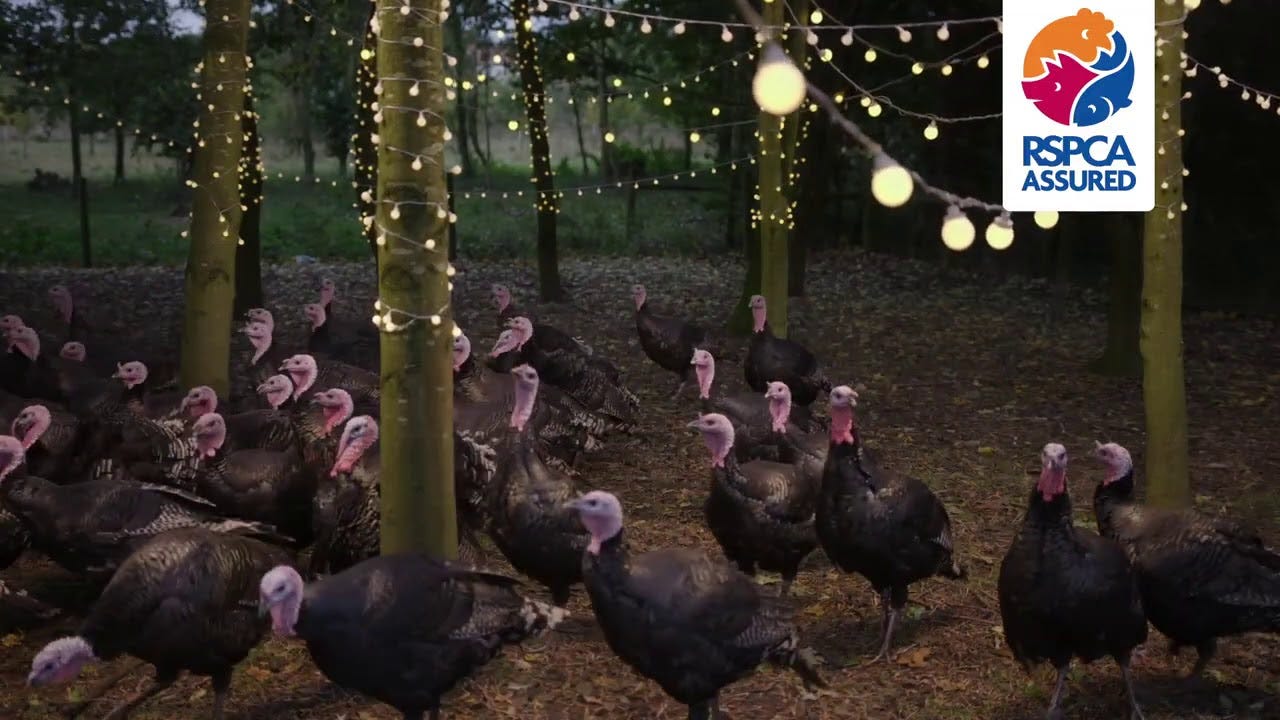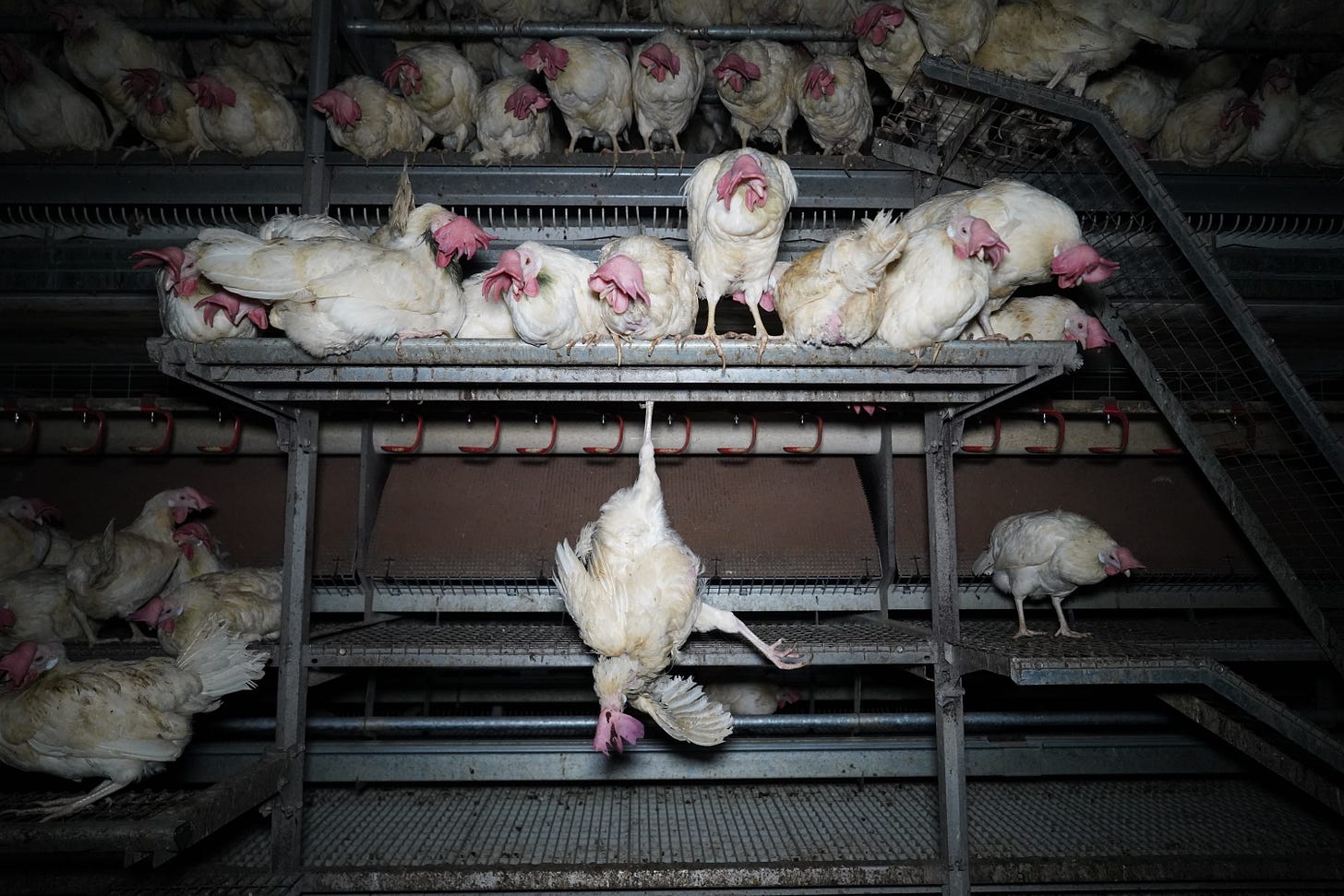Narrative research sneak peeks: Trust in the RSPCA Assured scheme drops by a third after seeing undercover footage of Assured farms
Results from our latest nationally representative poll
The RSPCA Assured scheme in the UK claims to uphold high welfare standards for farmed animals, but it has faced growing controversy in the past few months over accusations of welfare-washing — a practice where supposed welfare measures are used to mask widespread animal suffering. Recently, we were commissioned by the For Charlie campaign to better understand how the public views the RSPCA Assured scheme, the ethics of farming animals, and potential support for transitioning to a plant-based future. We recruited a nationally representative sample of 2,000 participants in the UK, and here's what we found…

Awareness of RSPCA Assured and Welfare-washing
Knowledge of the RSPCA Assured scheme is fairly high (68%). However, only one in four participants had previously heard of the term 'welfare-washing'. After being given a description, 80% agreed that welfare-washing is a serious issue — highlighting the importance of public awareness in confronting this issue of disinformation.

The Public is Ready for Change
Our poll revealed that the UK truly is a nation of animal lovers. Nearly 9 in 10 respondents (89%) said they care strongly about the welfare of farmed animals, and 74% noted that this concern influences the products they buy. Remarkably, a third of respondents (36%) believe there is no kind way to farm animals and that the RSPCA should support a transition towards a plant-based future.
These findings are consistent with our previous polling, which found that 25-30% of the public support an outright abolition of farming animals. Despite the RSPCA’s response to the For Charlie campaign’s open letter — which stated, that "Society is so far away from... drastically [reducing] the number of animals farmed " — our poll results suggest society may be more ready for change than the RSPCA believes.
While it’s clear that 36% of people aren’t yet living plant-based, powerful psychological and cultural forces maintain the status quo. People often look to others when deciding how to behave, and many are hesitant to act in ways that might seem outside of prevailing norms. This reveals the need for our movement to establish new cultural norms where plant-based eating becomes the default, and eating animals becomes the exception.
Raising Awareness Shifts Public Opinion
As part of our survey, participants watched a short version of the For Charlie video, which contrasted footage used in RSPCA Assured advertisements with the reality found through undercover investigations by Animal Rising and Animal Justice Project.
The results were striking. Trust in RSPCA transparency dropped by a third — from 68% pre-test to 46% post-test.
Agreement with the statement "Even the best certification schemes can't ensure animal welfare" rose significantly — from 60% to 73%. Additionally, there was a small but meaningful shift in attitudes around food system transition, with a 4% point increase in agreement that "The RSPCA should support a transition away from farming animals."
After watching the video, the proportion of respondents agreeing that "The RSPCA's continued endorsement of the Assured scheme contradicts its mission to prevent cruelty to animals" more than doubled — rising from 21% to 50%. Likewise, belief that "the RSPCA Assured label should be dropped" more than tripled, from 8% to 29%.
The survey also demonstrated the potential impact on individual dietary choices. We saw a 6% point increase in the number of people considering cutting meat from their diets, from 22% to 28%. Given that participants were only exposed to a 49-second video, this seems like a really encouraging increase.

What Can We Take From This?
The data shows that society might be closer to significant change than many realise — we may just need to find the right strategy to support the 30% of people on the brink of change. Additionally, it’s clear that awareness-raising — even through a short 49-second video — can be remarkably effective at shifting public attitudes. This gives us hope and direction as a movement.
Of course, videos and messages like the one we used, which try to raise awareness of welfare-washing, should be part of a broader narrative that helps people envision a positive future — a society where animals are truly free and valued as individuals, not commodities. We need to highlight the destination we are heading towards, where our animal cousins are respected and live meaningful lives. By creating powerful, empathy-driven messages and showing examples of a plant-based future in everyday life, we can make plant-based living feel like the natural and compassionate choice for all, and animal freedom feel like the next step in our moral evolution as a society.
You can read the full report in detail here.






Great (and hopeful) work thank you! The link to the full report at the end seems to be broken though.